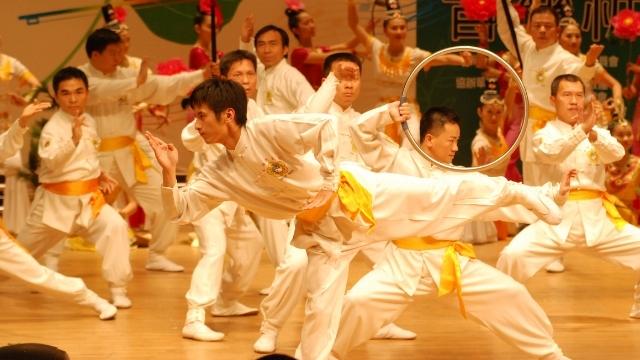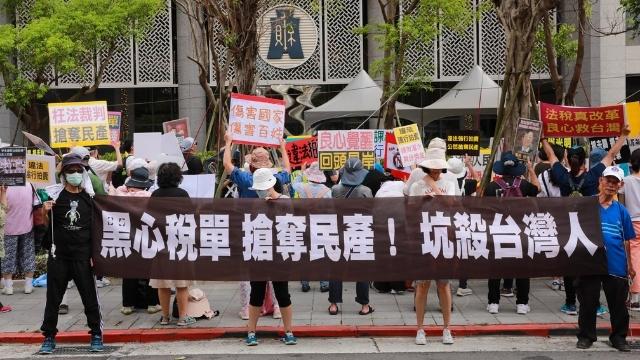11/11/2021LINDA CHEN
Both my practice as a Tai Ji Men dizi and my experience in the medical field told me that honest and sympathetic dialogue is crucial. This rule was not followed in the Tai Ji Men case.
by Linda Chen*
*A paper presented at the 2021 Parliament of the World’s Religions, at the session “Peace and Justice in Action: The Tai Ji Men Experience,” October 17, 2021.

My name is Linda Chen. I am a dizi (disciple) of Tai Ji Men. In the past 26 years, I have practiced Tai Ji Men qigong and meditation on a daily basis. The Eastern traditions and wisdom that I learned from my Shifu, the Zhang-men-ren of Tai Ji Men, Dr Hong Tao-Tze, have brought out the best nature of me, and set me onto the right life path, so that I can reach the greatest potential in life. We, Tai Ji Men dizi, come from all walks of life and live in many parts of the world. I am a post-doctoral research associate in the medical field at Dalhousie University in Halifax, on the East Coast of Canada.
I studied rare genetic heart diseases for many years. Using advanced technologies, I was able to make beating heart muscle cells in the laboratory from a tube of blood. I turned healthy heart cells to diseased ones for my study. In fact, fixing diseased heart cells to make them healthy is not a hard task in the laboratory setting.
However, when the COVID-19 pandemic hit the world last year and during several phases of lockdowns, like many people, I was forced to work from home. Looking at the devastated situations in the world made me think deeply, why this happened. To me, the skills of knowing how to make healthy heart muscle cells in the lab seemed to be useless when facing so many deaths and sadness in the world. In the past year, I was contemplating what we can do as humanity to achieve global sustainable development.
Before I dive in deeper with my views, allow me to share one of my work experiences. It is quite a unique and interesting casual job that I signed up for. I was trained to be a simulated patient for a medical students’ communication skills class, and a standardized patient for the Medical Council of Canada Licensing Exam. In a nutshell, this is an acting job, where I play out a given script and interact with students in medical professions to simulate the real-life scenarios that are often seen at the clinic.
Through this job, I had played a mom of a sick infant and a daughter of elderly parents. I played the role of a lady who belongs to a specific religious group that is known to require specialized treatment plans because of its fundamental religious beliefs. I was a janitor sometimes, and a school principal in another script. I thought it was a short-term actress job. But in the past 10 years, I have continued playing different roles. I certainly did not lose the job because I was getting older.
In fact, I played many pregnant roles in my early thirties, then complicated high risk pregnancy roles in my late 30s. As I hit 40 years of age, I started playing roles with aging related diseases. This made me realize we can be all different, but every single person has his/her place in this world. Your age, gender, background, what you look like do not matter, we are all citizens of one world.
As world citizens, we all share the gifts of Mother Earth and face many of the same difficulties. We are all connected in some ways, and we need to recognize that each single one of us and our actions have an important role to play in our society, our environment, and our globe.

Through playing a few dozens of roles, I encountered hundreds of medical students and doctors. Do you know what else I learned from this experience? I learned that when medical students show their compassion and learn how to be empathetic, they tend to gain the trust of a patient more quickly and strongly. When a doctor is more open-minded and is being respectful when listening to his/her patients, that makes patients feel more secure. An open communication between doctor and patient help doctors make the best treatment decisions for their patients.
Now let us think for a moment, what is your idea of a healthy world like? I think a healthy world is a happy and peaceful one; a world not just with the absence of sorrow, pain, war, or negatives, but filled with compassion, love, laughter, joys, and positives. It is a place where sustainable development is a reality; everyone has a healthy body, mind, and spirit, and where humanity, all beings, and Mother Earth live in a balanced and harmonious manner.
Of course, if the goal is achieving a peaceful and better future for humanity, there are many challenges to overcome, especially in this multicultural world. My volunteer involvement with an NGO called FOWPAL (Federation of World Peace and Love) and my being a disciple at Tai Ji Men have taught me that conscience is the key. Conscience is the common ground and the common language of humanity.
It is our inner voice, the inherited kindness, which can guide us towards making wise decisions for ourselves, our community, our environment, and our planet. So, conscience promotes the mutual understanding that is essentially bridging the gaps between different backgrounds and cultures.
FOWPAL and Tai Ji Men have been spreading love and peace through cultural exchanging programs, such as singing, drumming, Chinese traditional dancing, and holding summits and ceremonies of ringing the Bell of World Peace and Love to promote appreciation of and respect for different cultures. So far, Tai Ji Men has visited 101 countries in the world. Like we have seen in many of the vibrant programs at this conference here, we know that cultural performance and having open dialogues like we have at this Parliament are excellent ways to bring people from different cultures closer.
But here I would like to point out that one very big challenge Tai Ji Men, a peaceful and loving spiritual group, has been facing in the past 25 years, as Dr. Massimo Introvigne discussed earlier in this session, is the so-called “Tai Ji Men case.” It made my jaw drop in disbelief that a government claiming to be democratic internationally can be so openly violating people’s economic, social, cultural rights and its own citizens’ freedom of religion or belief and show no concern at destroying a precious living heritage.

Tai Ji Men dizi take peaceful and persistent actions for tax law reform in Taiwan. We fight for human rights in a non-violent and rational manner, and advocate for many more innocent civilians that were and are still unable to confront corrupted bureaucrats in Taiwan. This truly demonstrates compassion in action. Of course, we can choose to turn a blind eye and do nothing; but also, we have the option to advocate for social justice in Taiwan.
I took this second option! I have learned to stand up. Because of love and compassion, because I want a better future for the next generations, I am taking action here by speaking up against social injustice.
I would like to call on Taiwanese government officials for taking immediate action, listening to their conscience, and correcting the wrongdoings perpetrated against Tai Ji Men. A heart-to-heart open dialogue between the Taiwanese government and Tai Ji Men is necessary to solve the problem.
Finally, some of us here might think that world peace and a better future for humanity are a little bit too far-reaching goals at this moment, especially, while the world is dealing with the continuous impact of the COVID-19 pandemic and increasing frequencies of devastating natural disasters. We all need to come together. Just like a heart, to create a heartbeat, requires that each cell in the heart follows the electric signals in order.
One cell should communicate after the other one, and they should work together in a synchronized fashion. We all play important roles! Let us make sure we communicate heart-to-heart, and do not let a single heartbeat be skipped or anyone stay behind, as we move forward to creating a healthy world for all.
Source: Bitter Winter
